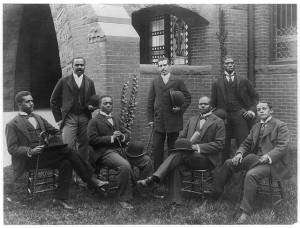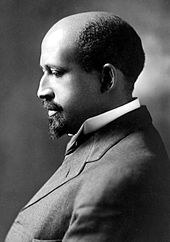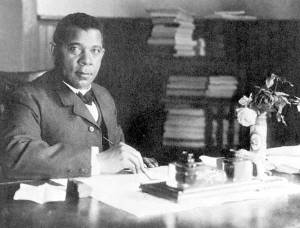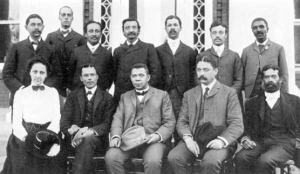At hundreds of colleges across the country, Black Faculty & Staff Associations (BFSAs) are strong and respected employee advocacy and resource organizations. Born out of pain and struggle, these groups have been responsive to discriminatory barriers in the workplace for decades.
Specifically, the Los Angeles Community College District Black Faculty & Staff Association (LACCD BFSA), established 50 years ago with only a handful of employees, courageously confronted and worked against barriers that hindered equal opportunities in the workplace. Well versed in contract negotiations and conflict resolution, members brought their seats to the table by initiating policy recommendations, requesting harassment and discrimination training, creating channels where employees felt safe speaking up about racial issues, and immersing themselves in governance committees. In addition to teaching students, they also had to protect themselves and their livliehoods and make it easier for African American employees coming after them.
During its tenure, the BFSA has established mutually respectful and strong bridges with many individuals and entities throughout the history of the organization. Our name and brand, shared by thousands of colleges and universities across the country, bring with it, our core values and is a reflection of a strong heritage, established by our predecessors and living legends, such as City College’s Mary Crockett, Henry Ealy, and Mattie Moon. Independent, nonpartisan and funded by dues-paying members, BFSA is one of LACCD’s oldest and most respected organizations.
Mission
The mission of the Los Angeles Community College District (LACCD) Black Faculty and Staff Association (BFSA) is to be a visible and viable agency dedicated to supporting employment equity and professional excellence, leadership, and development of African American faculty and staff of the District by:
- Advocating for fair hiring, promotion, and retention practices
- Encouraging professional excellence and growth through mentorship and networking opportunities
- Creating, cultivating and maintaining a sense of community and a safe space to speak
- Enhancing morale, self-esteem, and cultural identity by recognizing and celebrating accomplishments, contributions, and milestones through culturally-inspired celebrations and activities
History
Before the establishment of collective bargaining in California’s community colleges, there were Black employees that came together to make sure there was fairness in decision making. One of the founding members of the Black Faculty & Staff Association, Mattie Moon, recalls, “We knew that Black people were not being hired, so we requested to sit in and watch the interviews to make sure that the process was done fairly.”
The district connected with the larger California Black Faculty and Staff Association (CBFSA) for additional support and resources. The CBFSA was organized to properly address the needs of Black faculty, staff and students. This idea of a statewide effort was proposed and initiated by Dr. Enid Blaylock at California State University at Long Beach. She recognized that Black faculty and staff in California did not have a central organization around which they could coalesce and effectively deal with problems commonly faced by Blacks employed in higher education. Taking stock of its own dilemma, the Board of CBFSA developed a more effective advocate organization in order to advance the cause.
With this new thrust, CBFSA revamped its organizational structure, rewrote the bylaws and adopted new goals and objectives. An intensive recruitment drive was conducted, and after a year, membership was doubled. Recruiting efforts over the years were successful and grew to nearly 600 dues paying members. Membership stretched across the state and encompassed all three systems of publicly-supported higher education as well as private colleges and universities.
Founders
If we stand tall, it is because we stand on the shoulders of many ancestors. ~Yoruba Proverb
It is because of their courageous leadership and interest in equity that the Black Faculty & Staff Association is in existence. The following individuals have been constant advocates for fairness in hiring, retention, and promotion of Black faculty and staff of the LA Community College District.
Mary Thompson Crockett
English Composition
African American Literature
Professor Crockett began teaching in the Los Angeles Unified School District, and transferred to the Los Angeles Community College District once it was formed. She was teaching African American Literature, but when the layoffs were came in the 1980s, she was moved to the History Department.
Jesse Owens Smith, Ph.D., Professor of Ethnic Studies, Emeritus
Professor of Ethnic Studies, Emeritus
Department of Afro-Ethnic Studies
California State University at Fullerton
The founder of the Association of Black College Faculty and Staff of Southern California (also known as the “State BFSA”), a nonprofit organization established in July of 1975, Dr. J. Owens Smith is a former professor of Afro-Ethnic Studies and Political Science, and faculty member emeritus at California State University at Fullerton. He received a B.A. in Journalism at California State University at Los Angeles, and an M.A. and a Ph.D. in political science at the University of Chicago.
Dr. J. Owens currently resides in Southern California with his family and continues to consult on issues of employment equality for African-American employees and socio-economic development and growth of the black community.
Henry Ealy, Professor of History, Emeritus
Professor of History, Emeritus
Department of American Cultures
Los Angeles City College
Professor Ealy began his tenure at the District in 1972 and retired in 2004. Regarded by his colleagues as a gifted teacher with “ferocity of personal commitment to equal justice and unflagging sense of principle,” Ealy was the department chair and a professor in the Los Angels City College American Cultures Department, which he co-founded early in his 40-year career. One of the first teachers to pioneer multicultural curricula, Ealy has demonstrated breadth and versatility in his commitment to diversity by teaching courses ranging from African American Studies to Asian American Studies, Chicano Studies and United States History. He created the first successful campus Upward Bound program that provided African American and Chicano/Latino students with opportunities for academic enrichment and cultural interaction. As a teacher, faculty mentor and role model, Ealy created and maintained a classroom setting where everyone was treated fairly; and by transcending tolerance, his students possessed an awareness and appreciation for unfamiliar aspects of other cultures. Ealy explained, “Diversity is the lubricant necessary for people from different backgrounds to work in harmony with each other. My purpose as a teacher has always been to create exactly that kind of harmony and therefore, one must treat all persons fairly and with an awareness of their unique individual attributes.”
In his efforts to involve and diversify the student body, Ealy has advised and served on numerous committees, extracurricular organizations, and in the greater community where he has organized countless citywide programs and conferences over the years, including hosting the African American Manchild Conference in 1999. Ealy has unceasingly led by example with the advice that he frequently offers to younger colleagues: “Come early and stay until the last student has been served.” Fellow faculty members note that it was this unwavering dedication that made him a model worthy to be emulated.
Joyce Livingston, Professor of History, Emeritus
Department Chair, Library
Professor of History, Emeritus
Library Department
Los Angeles Trade-Technical College
Ms. Livingston began her academic career at Southwest College as a tutor in the Learning Skills Center before continuing her education at University of Southern California (USC). In 1975, she earned a Bachelor of Arts degree in History; and in 1977, she obtained her Master’s degree in Library Science. Ms. Livingston began her career as a librarian for the Los Angeles County Public Library System, which eventually led her back to the Los Angeles Community College District as a faculty member at Southwest, Harbor, and Mission colleges. In 1980, Ms. Livingston became a full-time faculty Librarian in overseeing Reference Instruction and as an adjunct history instructor at Los Angeles Trade-Technical College. In 1984, Ms. Livingston earned the academic ranking of Professor, and shortly after, held the position of Library Department Chairperson for 14 years. During her tenure, Ms. Livingston served in various leadership and membership positions in a multitude of committees including, but not limited to Academic Senate, Education Policies, Curriculum, District Discipline Committee for Library Services, and Hiring Prioritization. She was also very involved in other outside committees, such as the California Librarians Black Caucus.
After stepping down as chairperson in 2009, Ms. Livingston assumed the position again, until she retired in 2012, after nearly 33 years of service at Los Angeles Trade-Technical College and 35 years in the Los Angeles Community College District .
She served as a member of the American Federation of Teachers Guild Local 1521, the Los Angeles Faculty Guild, the Librarian Black Caucus, and the Los Angeles Community College Black Faculty & Staff Association. Through her tireless work and efforts, Ms. Livingston was selected as Who’s Who Among Black Americans in 1994 for her civic and professional contributions to American society.
Mattie Moon, Professor of Sociology, Emeritus
Professor of Sociology, Emeritus
Department of Social Science
Los Angeles City College
Mattie Moon was born and raised in Los Angeles. She attended Nevin Avenue Elementary School, Lafayette Junior High School, and Jefferson High School. Moon received an AA degree from Southwest College. As a college student, Moon was very active and outspoken on campus. Later, Moon, married and with a family, attended Loyola and earned both a Bachelor’s and Master’s degree. She was a member of Phi Alpha Theta, National History Honor Society Member of Alpha Sigma Nu and the National Jesuit Scholastic Honor Society. In 1971, Moon was then hired at Southwest College as a part-time instructor and subsequently at City College as a full-time faculty member in the African American studies department. Professor Mary Crockett was on her hiring committee. Professor Moon participated on numerous committees, such as budget, hiring, and curriculum committees throughout her years in the district. She also held the position of secretary for the Academic Senate during Gwen Hill’s presidency. Moon retired in 1999 and continues on the AFT1521 Board as an emeritus member.
Pat Siever-Henderson, Professor of History, Emeritus
History Department
Black Student Union Advisor
West Los Angeles City College
Professor Patricia Siever-Henderson, former vice-chair of the History Department at West Los Angeles College, began community college teaching in the mid-1970s, and found comfortable niches in all sections of academia. She has been a member of community college accreditation teams, chair of the Commission for the Advancement of Teaching–district-wide, former president and vice president of the California Association of Community Colleges, member of task force for legislative reform, secretary of the Faculty Guild, and member of the California Community College Board of Governors. She later served as vice president. She was also elected as a Trustee of the Culver City Unified School District.A graduate of UCLA with a bachelor’s in history and a master’s in African studies, Professor Siever-Henderson said, “Education is my life… It isn’t just a part of it. It is teaching students and seeing them succeed, knowing they are our future.”
Aside from her contributions and achievements in academia, Professor Siever-Henderson was very active in crucial areas of policy-shaping and budget-deciding committees and boards.







Thank you for your presence in the world of community college affairs. As a former faculty member at a community college, I know of the need to be organized. Keep up the good work.
LikeLike
Please like us on Facebook.
LikeLike